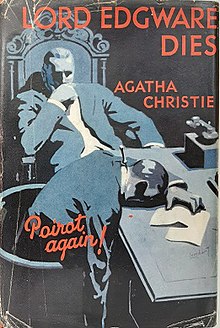by Michael Chabon (read by Michael York) c. 2006
THIS REVIEW CONTAINS SPOILERS. STOP HERE IF YOU DON'T WANT TO KNOW HOW THE STORY ENDS
I'm sorry, I'm breaking my no-spoilers policy. I don't know how to insert spoiler tags but there are things that I want to say that will give away the whole story.
I'm all for authors who like to try new things --especially if they get it right. How curious, then, that in one week I have read two books by superb authors (Chabon and Mosley) where they are getting out of the groove. I haven't been this excited about a new title in a while and now it's two in one week.
Not that I have ready everything he has written but I am a long time fan of Michael Chabon -- The Wonder Boys, The Yiddish Policemen's Union, The Adventures of Kavalier & Clay and now The FInal Solution. I read the first because I loved the movie, The Wonder Boys (Frances McDormand, Michael Douglas, Tobey Maguire, Robert Downey, Jr., et al.). This was a really odd move on my part because I will see the movie or read the book but very, very rarely both. I don't like seeing my favorite books turned into movies; they never get it right. The other Chabon titles followed.
I was browsing the Audible Plus catalog when I found The Final Solution. Oh, my goodness! Who in their right mind calls their book The Final Solution? Michael Chabon, that's who! Those three words are in inexorably and forever linked to that madman and the Holocaust. They are forever tainted. Ah, but it is Chabon and right from the get-go he is giving us some mighty big hints and already I want to know what the questions is.
For a novella, Chabon sure packs a lot into it. Set toward the end of World War II, there are two stories very neatly intertwined. The overt story (which I completely missed because I wanted the answer to the covert story) is a detective story -- a murder and the kidnapping of a very special parrot. I completely missed that the old man was supposed to be the now retired Sherlock Holmes (never given a name and referred to as the old man); I learned that on the internet after I read the book. The covert story revolves around the boy, the owner of the parrot, who was part of the Kindertransport that rescued 10,000 children, mostly Jews, from Germany, Austria and Czechoslovakia just prior to the outbreak of World War II.
The boy is mute; does not say a word throughout the entire book. The parrot does all the talking. Among other litanies, he counts in German. What is the meaning of these numbers? Are they a secret code? Well, somebody thinks they are important enough to commit murder and kidnap the bird. The old man gets involved and solves the mystery. But the numbers are where the overt and the covert intersect. What do those numbers mean? I knew from the moment the parrot started reciting, from the the title, that the numbers had to do with the Holocaust and not some spy ring or anything else connect to the waging of war, I just wasn't sure exactly what.
Of course, Chabon saves the best for last --and it is magical. First, he takes us inside the mind of the parrot and reveals many secrets (least of which is that the bird is pissed off and wants to slash the face of the kidnapper). Inside the mind of the parrot!? What a stroke of genius. Then in the last paragraphs of the book, as the old man is bringing the parrot back to the boy, standing in the train station, we finally are shown what the numbers are. Only if you have been paying attention, only if you are clever enough and knowledgeable enough, will you know what the numbers meant because Chabon doesn't make a definitive statement of what they mean he just describes the scene. It is then up to the reader to understand the meaning...or not.
Four and a half stars. I am going to have to read this one again!






















